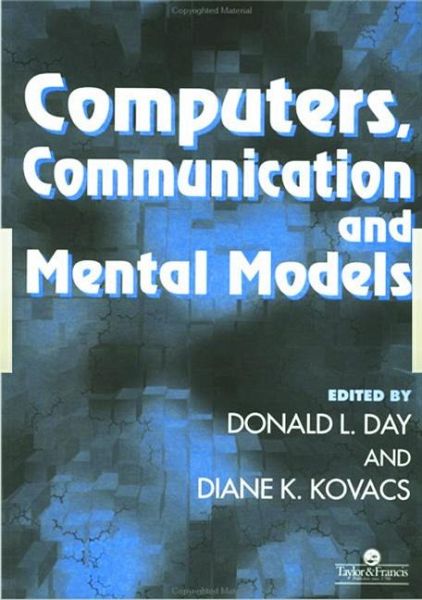
Computers, Communication, and Mental Models
Versandkostenfrei!
Versandfertig in 1-2 Wochen
71,99 €
inkl. MwSt.
Weitere Ausgaben:

PAYBACK Punkte
36 °P sammeln!
This book is a far-ranging but focused treatment of the cognitive and behavioural issues in computer-mediated communication, knowledge representation, and computer-supported co-operative work. It also develops the theoretical basis for treating computerised tools as intermediaries in the communication of mental maps between tool builders and tool users. Computers, Communication and Mental Models presents a collection of multidisciplinary papers, each of which sheds light on the complex interactions between users and systems architects, via a common medium: computerised tools. Work by internati...
This book is a far-ranging but focused treatment of the cognitive and behavioural issues in computer-mediated communication, knowledge representation, and computer-supported co-operative work. It also develops the theoretical basis for treating computerised tools as intermediaries in the communication of mental maps between tool builders and tool users. Computers, Communication and Mental Models presents a collection of multidisciplinary papers, each of which sheds light on the complex interactions between users and systems architects, via a common medium: computerised tools. Work by international specialists in psychology, human-computer interaction, communication theory, learning theory and group decision making is featured. Included are treatments of inherent functionality in metaphoric representations; studies of computer-mediated communication, examinations of how spatial cognition can be mapped using fractals, and how hypertext can map students' learning of complex architectural models. Finally, the significant roles that tool characteristics play in group decision making are addressed. In addition to its empirical value to academics and practitioners, the book also provides practical features that recommend it as a valuable resource.














